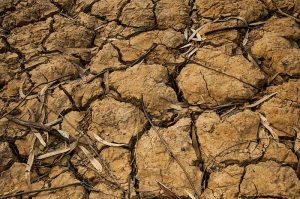Raymond F, Drobinski F, Ullmann Albin, Camberlin P (2018) Extreme dry spells over the Mediterranean Basin during the wet season: Assessment of HyMeX/Med-CORDEX regional climate simulations (1979–2009). Int. J. Climatol., 1–16. DOI: 10.1002/joc.5487
KEYWORDS
extreme dry spells, HyMeX/Med-CORDEX, Mediterranean Basin, RCM models evaluation
ABSTRACT
Exceptional dry spells, in this study referred to as very long dry spells (VLDS), are natural hazards to which the Mediterranean region is extremely vulnerable, with socio-economic and environmental impacts. In this study, they are character- ized in terms of location, spatial extent, duration, temporal variability and associ- ated atmospheric circulations. The main objective is to assess the performance of five HyMeX/Med-CORDEX regional climate simulations to detect and reproduce VLDS in comparison with the E-OBS observed daily gridded data. Models accu- rately reproduce the occurrence of precipitation around the Mediterranean Basin, and therefore the occurrence of VLDS, with at least 51% of the E-OBS VLDS reproduced by the regional simulations. They also accurately simulate the spatio- temporal characteristics. A second objective is to identify the synoptic atmospheric patterns associated with VLDS. A clustering analysis shows that all models accu- rately reproduce the main VLDS spatial patterns, associated with anticyclonic con- ditions above the affected regions. The simulated VLDS occurrence is strongly related to the amplitude of the sea level pressure and 500-hPa geopotential height anomalies as well as the location of the maximum anomalies. All VLDS events are associated with anticyclonic conditions except those occurring in the eastern Mediterranean, where they are generally not associated with a specific meteoro- logical event but with the usual summer weather regime.

